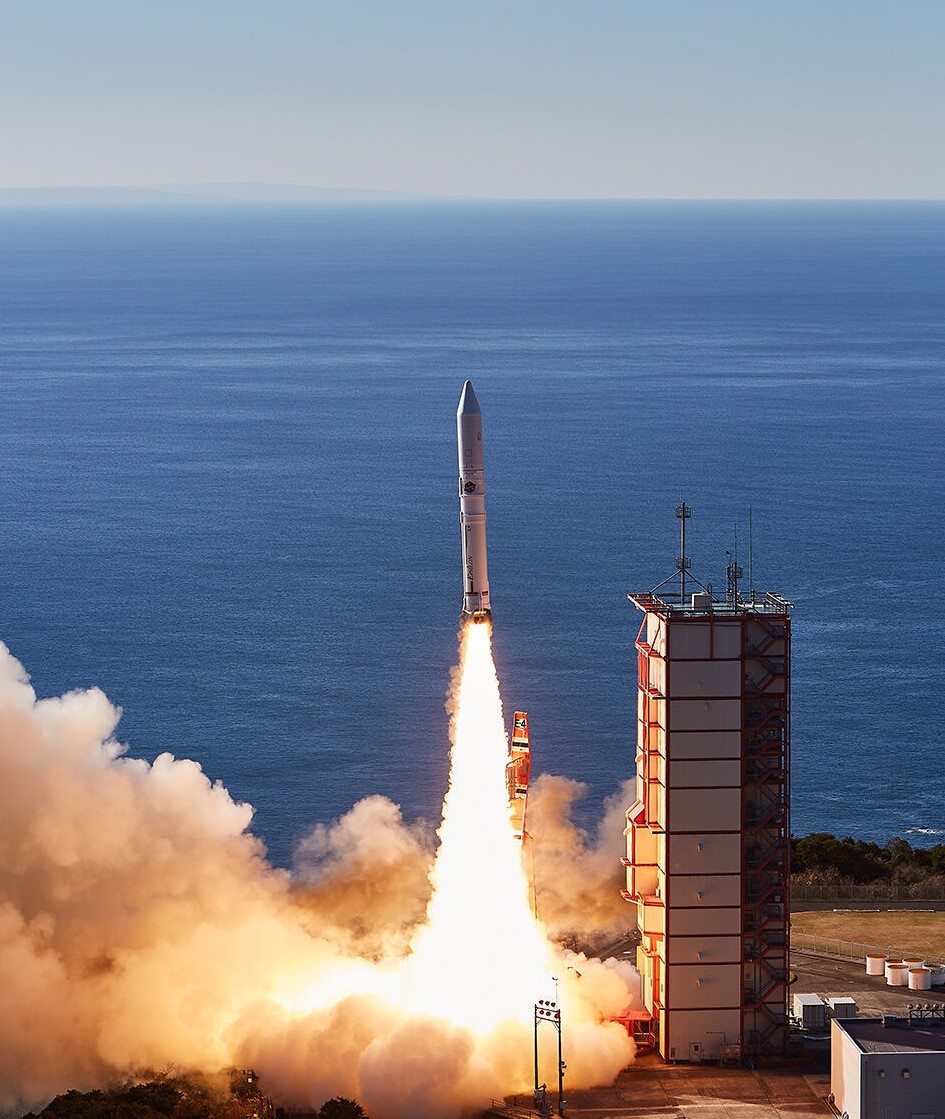
Epsilon
ActiveJapan Aerospace Exploration Agency (JAXA)
Sept. 14, 2013
Description
The Epsilon rocket is a Japanese solid-fuel rocket designed to launch scientific satellites. It is a follow-on project to the larger and more expensive M-V rocket which was retired in 2006. The Japan Aerospace Exploration Agency (JAXA) began developing the Epsilon in 2007. It is capable of placing a 590 kg payload into Sun-synchronous orbit.
Specifications
-
Minimum Stage
3 -
Max Stage
4 -
Length
24.4 m -
Diameter
2.5 m -
Fairing Diameter
2.5 m -
Launch Mass
91.0 T -
Thrust
2271.0 kN
Family
-
Name
Epsilon -
Family
― -
Variant
― -
Alias
― -
Full Name
Epsilon
Payload Capacity
-
Launch Cost
$39000000 -
Low Earth Orbit
― -
Geostationary Transfer
Orbit
― -
Direct Geostationary
― -
Sun-Synchronous Capacity
590.0 kg
Japan Aerospace Exploration Agency
Government
Administrator: Hiroshi Yamakawa
JAXA 2003The Japan Aerospace Exploration Agency (JAXA) is Japan's national aero-space agency. Through the merger of three previously independent organizations, JAXA was formed on 1 October 2003. JAXA is responsible for research, technology development and the launch of satellites into orbit, and is involved in many more advanced missions, such as asteroid exploration and possible manned exploration of the Moon. JAXA launch their Epsilon vehicle from the Uchinoura Space Center and their H-II vehicles from the Tanegashima Space Center.
Flight Record
No spaceflights found for .
Electron
The Nation God Navigates (iQPS Launch 5)
Rocket Lab Launch Complex 1B - Rocket Lab Launch Complex 1, Mahia Peninsula, New ZealandSynthetic aperture radar Earth observation satellite for Japanese Earth imaging company iQPS.
Ariane 62
Sentinel-1D
Ariane Launch Area 4 - Guiana Space Centre, French GuianaSentinel-1D carries an advanced radar technology to provide an all-weather, day-and-night supply of imagery of Earth’s surface as part of the Sentine…
Long March 7A
Unknown Payload
201 - Wenchang Space Launch Site, People's Republic of ChinaDetails TBD.
LVM-3 (GSLV Mk III)
CMS-03 (GSAT-7R)
Satish Dhawan Space Centre Second Launch Pad - Satish Dhawan Space Centre, IndiaCommunications Satellite for the Indian Navy, replacing GSAT-7 for secure real-time links between Indian warships, submarines, aircraft, and shore-ba…
Falcon 9
Bandwagon 4 (Dedicated Mid-Inclination Rideshare)
Space Launch Complex 40 - Cape Canaveral SFS, FL, USADedicated rideshare flight to a mid-inclination orbit with dozens of small microsatellites and nanosatellites for commercial and government customers.

